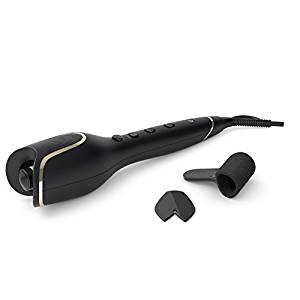
Lockenstab Automatisch Schnurlos, Lockenwickler mit 6 Temperaturstufen (150-200℃) & 8-18S Timer, USB Aufladung Hair Curler mit 5000mAh Akku, Negativ-Ionen Lockenstab Set, LCD & Intelligente Induktion : Amazon.de: Beauty

Lockenstab Automatisch, Janelove Automatischer Lockenstab Große Locken für Lange Haare, Negativ-Ionen Lockenwickler mit 4 Temperaturen : Amazon.de: Kosmetik, Parfüms & Hautpflege















